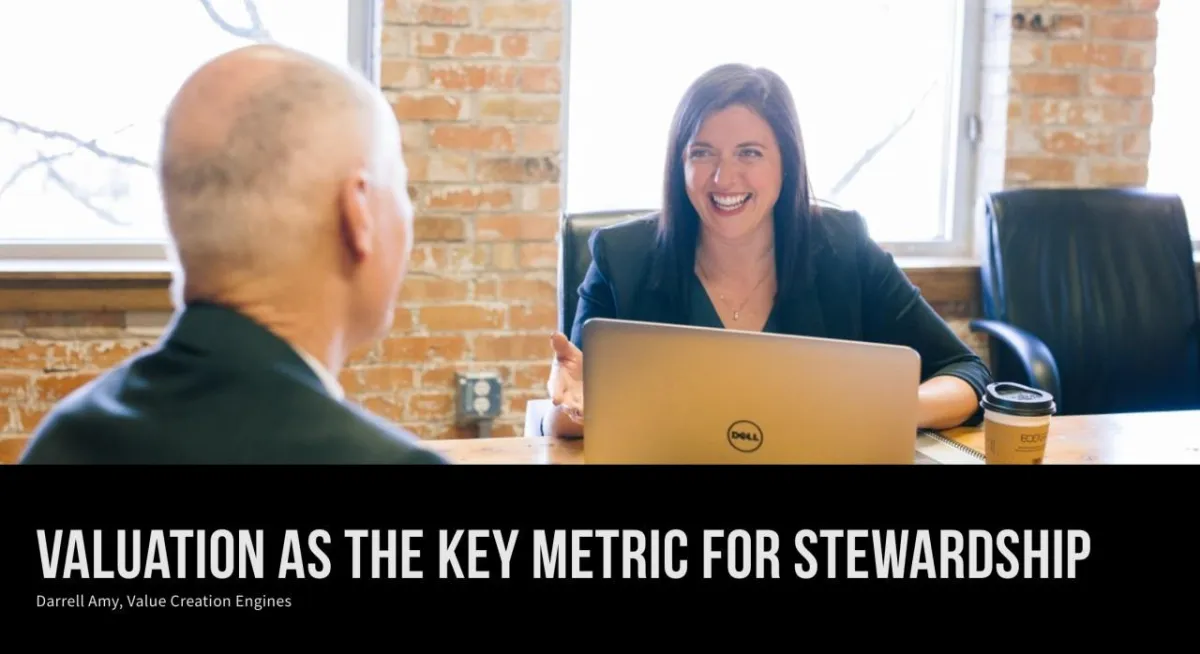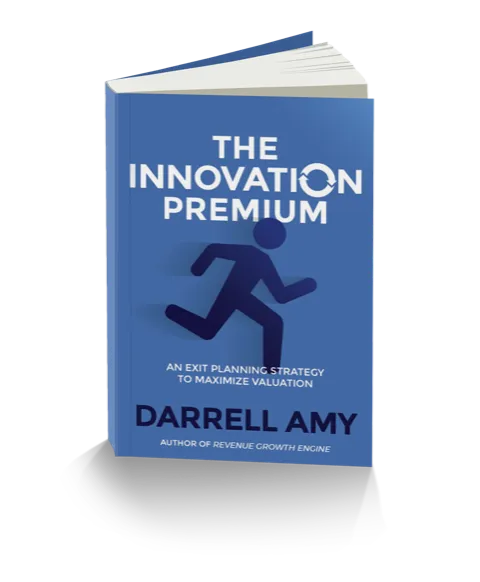THE FOUNDER INDEPENDENCE BLOG
Dive into our latest blog posts where we explore key strategies and real-life case studies designed to help you increase the valuation your business.

Valuation as The Key Metric for Stewardship
All business leaders are called to be good stewards. Stewardship is the leader’s role in the creation, management, and distribution of wealth. Wealth is a measurement of value. Therefore, value is the primary metric of stewardship.
Most stewardship focuses on the management and distribution of wealth to the neglect of value creation. In this article, we’ll explore valuation, the measurement of value creation, as the core metric of stewardship.
First, some thoughts on stewardship:
Related to creating wealth, we steward our businesses by providing more value to customers in a way that drives growth valuation.
In managing wealth, we steward our investing by seeking out strategies that add value to provide a premium return.
In distributing wealth, we look for people and organizations that are making an impact.
A good steward looks for better ways to add value to customers, creates strategies to manage assets to create a return, and shares resources generously to make an impact. At each stage, a good steward seeks to add value in a way that makes the world a better place by providing excellent value for customers, meaningful work for employees, and resources for nonprofits solving critical problems.
Stewardship as Value Creation
Jesus tells the parable of the wealthy prince who charged three different people with stewarding $50,000 (10 Minas). His instructions were to “Trade with it and put the money to work until I return.” (Luke 19:12). The first steward creates 10X in value. The second creates 5X. Both of these received high praises and more authority.
The third steward played it safe. He received harsh criticism from the master. The $50,000 was taken from him and given to the person who demonstrated they could 10X the resources.
This is a story about value creation. The key metric is valuation growth. Jesus didn’t hesitate to evaluate stewardship based on value creation as measured by valuation. The first steward took $50,000 and turned it into a valuation $500,000. The second took $50,000 and turned it into a valuation of $250,000.
How Could You Measure and Track the Stewardship of a Business?
Stewardship is measured by valuation.
Valuation is the ultimate measure for a business. It combines the current profit of a business with the expectation for sustainable future profit growth. Valuation multiplies the profits of a business (quantity) times the multiple (quality). The quality of a business includes discounted future cash flows. The expectations for these future profits are related to important intangibles like strategic innovation and entrepreneurial culture.
When Do You Measure Valuation?
Unfortunately, most businesses don’t understand their valuation. They only measure valuation when it comes time to sell or raise capital. When it comes to value creation, at that point it is too late. In the mean time they settle for secondary scorecard metrics like revenue, profit, and cash flow. While these are important metrics that lead to EBITDA, they leave out the second part of valuation, the multiple.
Good stewards find ways to measure, track, and grow valuation as their primary scorecard metric. They train their leaders in how to measure and create value. They structure their company for value creation.
There are three ways to track valuation.
Formal Valuation. You can engage a valuation firm to do a formal valuation of your business. This involves a considerable amount of time and budget. This is required as you get ready to sell the business. Larger businesses typically have a professional valuation completed once a. Year. (If you would like an introduction to some firms that specialize in formal valuations I’d be happy to connect you.)
Wild Guess. You can value your business based on hearsay and anecdotal evidence. While news through the industry grapevine of what a business sold for is helpful, these metrics lead to a wild guess that is often overstated.
Valuation Software. In lieu of an expensive formal valuation as well as in-between annual formal evaluations, you can use valuation software to get an accurate estimate of the value of your business. The valuation software we use connects to a database of current EBITDA multiples by industry and a dataset of over 65,000 recent business sales. It can correlate your business to this data based on the key value drivers in your business to create an accurate estimate of valuation in less than an hour. This is an inexpensive and time-efficient way to track valuation on an ongoing basis. (If you would like to begin measuring the valuation of your company, message me and we can get started. The first valuation is free.)
Whether you do a formal valuation annually or measure valuation using software on an ongoing basis, tracking valuation is the beginning of good stewardship.
Managing To Value Creation
Once you know the valuation of your company, then you and your leadership team can begin to consider how to impact the value drivers. This brings a level of maturity that not only looks at the quantity of the revenue and profit but also the quality that ensures profits (and impact) will continue into the future.
Measuring, understanding, and tracking valuation are the key to good stewardship. 5Xing or 10Xing valuation leads to greater impact. In the parable, Jesus shares how the good stewards are rewarded: “Splendid! You have done well, my excellent servant. Because you have shown that I can trust you in this small matter, I now grant you authority to rule over ten cities.” (Luke 19:17) Interestingly, the impact of the steward goes beyond their business dealings into authority of entire cities and regions.
Is stewardship only about valuation? Yes and no. You could argue that the mission of the company is important. You could say that the culture of the company is important. You could say that the ministry impact of the business is important. All of these are true. And, in some way all of these are summed up in valuation. A company on mission with a great culture and a ministry impact will be more valuable. Jesus didn’t comment on the missional impact of the three stewards in the parable. He only commented on the valuation. Could this be because valuation sums up missional impact?
If you see your role in business as a steward and have not recently measured the valuation of your company, I would be happy to help you get started. Message me and we can find a time to talk.
Originally published on Darrell Amy's LinkedIn.
FREE BUSINESS VALUATION
What is Your Business Worth?
You can Discover the Value of Your Business in Less than 20 Minutes!
Join 70,000 business owners and get your score on the 8 Factors That Drive Your Company’s Value, a comprehensive analysis of your score and a detailed action plan for how to improve your score on each.

PREORDER YOUR FREE COPY NOW
Discover How to Create a Premium Valuation for Your Business
Learn how to command a premium multiple on your business
Find out why buyers discount their offers
See how innovation can help you create a premium valuation
Estimate your company's innovation index



